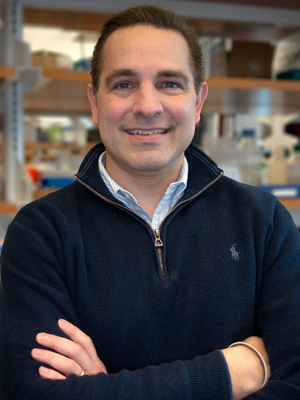Michael A. Brehm, PhD
Principal Investigator
Co-Director of the Diabetes Center of Excellence & the Humanized Mouse Core Facility,
Professor of Molecular Medicine, The Harvey A. Shultz Chair in Diabetes,
Investigator, Breakthrough T1D Barbara Dewey Cammett Center of Excellence in New England
Education
B.S. Microbiology
Philadelphia College of Pharmacy and Science, Philadelphia, PA
Ph.D. Microbiology/Immunology
Pennsylvania State University College of Medicine, Hershey, PA
Postdoctoral Fellowship
Department of Pathology, UMass Chan Medical School
Our primary focus is to understand the biology of how & why human insulin-secreting beta cells die during the development of type 1 diabetes and how the human immune system is involved in beta cell destruction.
Type 1 Diabetes (T1D) Research
We are investigating human immune responses, both how to turn them off for the treatment of T1D and autoimmunity, and how to use the same pathways to turn the immune response on for cancer treatment. Our novel "humanized" mice allow us to investigate these approaches to downregulate and activate the human immune system. We study and dissect mechanisms important in human immune response, but that are difficult to study directly in humans.
IN HIS OWN WORDS
Investigating Human Cells
The Brehm lab is working to understand how and why:
- Immune systems target and kill human beta cells in vivo
- Beta cells replicate and regenerate in vivo
- Islet-reactive cells develop in a human diabetes-susceptible immune system
- Beta cells resist being killed by the human immune system in vivo
Research in the Brehm lab is supported by Breakthrough T1D and the National Institutes of Health (NIH) funding. We utilize our humanized mice through multiple collaborations to study human regenerative medicine, immunity, human-specific infectious agents, and cancer. These studies have the potential to guide human clinical trials by determining the mechanisms by which therapeutic drugs, such as those based on targeting immune “checkpoints” that control how an immune system is turned off and on, will act directly on human immune systems, islets, and cancers in vivo, facilitating the direct translation of these agents into the clinic.

